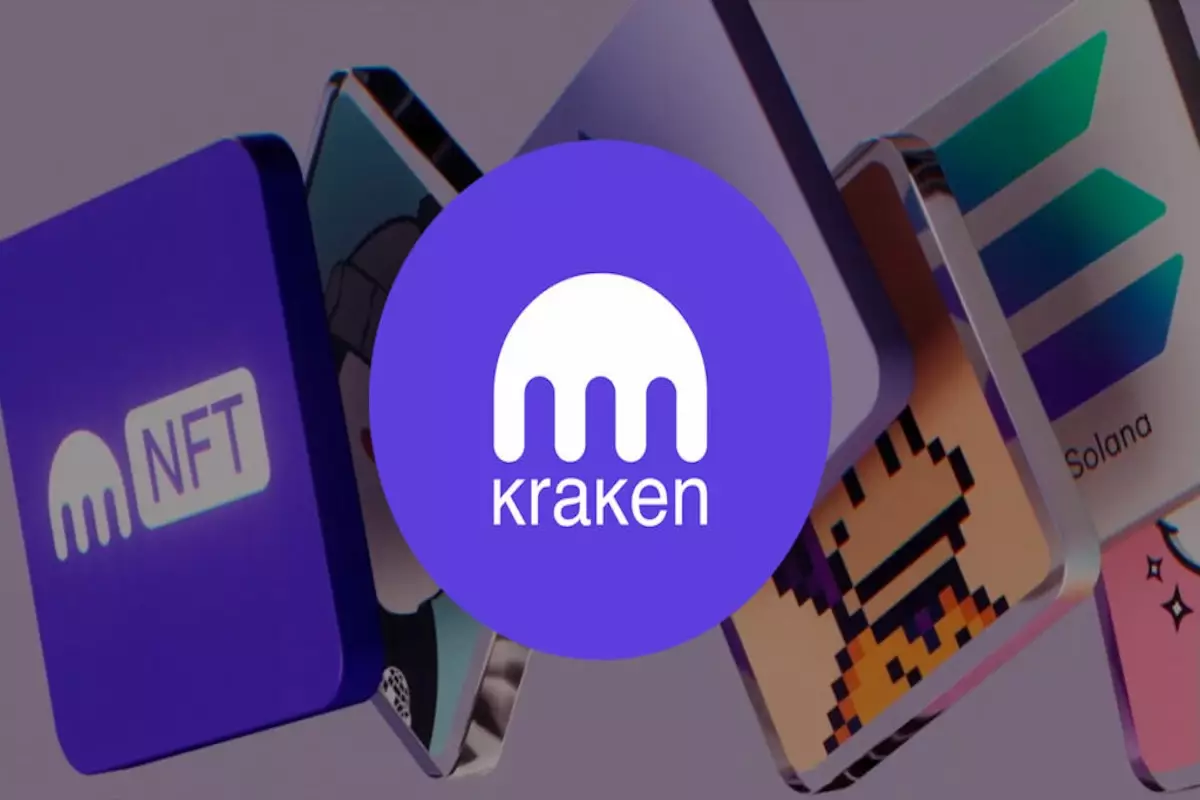In a significant development for the cryptocurrency community, Kraken, a leading global crypto exchange, announced the impending closure of its NFT marketplace. This decision marks a pivotal shift in the company’s strategic direction, demonstrating its intention to refocus resources away from NFT services in favor of innovative projects that align with the evolving landscape of digital currencies. As of November 27, the marketplace entered withdrawal mode and is set to be completely shuttered within three months, raising questions about its impact on the broader NFT ecosystem.
The rationale behind this closure was articulated in a statement from Kraken, which emphasized that the realignment is crucial to adapt to the continuously shifting dynamics of the cryptocurrency market. The exchange is redirecting its efforts toward the development of new products and services, including a proprietary blockchain anticipated to debut in 2025. By reallocating resources, Kraken aims not only to shore up its existing offerings but also to position itself optimally for future growth, demonstrating a forward-thinking approach in a highly competitive environment.
The shuttering of Kraken’s NFT marketplace can be seen as part of a broader trend reflecting the challenges currently faced by NFT platforms. Since April 2024, weekly trading volumes have plummeted below $200 million, signifying a stark contrast to the meteoric rise of NFTs in previous years. While niche collections like CryptoPunks continue to have market fervor, the general stagnation poses a significant challenge for platforms that facilitated NFT trading. Kraken’s exit echoes a growing need for crypto platforms to reassess their priorities against the backdrop of market volatility.
Moreover, the closure underscores how market leaders influence the strategic decisions of their competitors. Competitors such as OpenSea and Rarible are likely to benefit as users migrate from Kraken’s platform. These platforms have already established themselves with comprehensive ecosystems that support buying, selling, and trading of NFTs. Consequently, Kraken’s departure could invigorate competition among existing platforms and drive innovation, ultimately benefiting collectors and creators alike.
As collectors prepare for the transition following the closure of Kraken’s marketplace, they will have to undertake several crucial steps. Primarily, users must transfer their NFTs to either the Kraken Wallet or a self-custodial wallet. This necessity highlights the importance of preparation and security in managing digital assets.
In addition, collectors seeking alternative platforms have a range of established choices, including OpenSea and Rarible. Each platform has its unique features; for example, OpenSea supports multiple blockchains, enriching the diversity of NFTs available, while Rarible emphasizes decentralized governance through the RARI token, appealing to creators seeking autonomy over their assets. However, competition in this sector remains intense, and platforms must continuously innovate to capture user interest and ensure sustained engagement.
As the NFT marketplace transitions, new platforms emerging with distinctive features and user-friendly designs could attract users disillusioned by the current offerings. This evolving landscape presents an opportunity for both collectors and creators to explore platforms that may better meet their needs, reinforcing the notion of adaptability and resilience within the community.
Kraken’s withdrawal from the NFT space does not signify the end of NFTs but rather illustrates a pivotal moment in their development. The closure prompts numerous considerations for the future, particularly regarding how marketplaces can thrive amid challenges. To achieve sustained success, NFT platforms need to embrace a multi-faceted approach that encompasses market adaptation, impeccable security practices, simplified trading processes, and an innovative spirit.
The establishment of robust security measures is paramount, fostering user trust crucial for the longevity of any marketplace. In addition to security, the ability to streamline user experiences while offering unique trading features will be vital in attracting and retaining users. Therefore, platforms must not only adapt to shifting user demands but also proactively respond to technological advancements shaping the crypto landscape.
Kraken’s decision to shift focus highlights the importance of strategic realignment in the NFT industry. As the space evolves, embracing innovation and remaining agile will be fundamental for platforms, creators, and collectors alike. With change lurking around every corner, the coming years promise to be transformative, as competitive pressures incentivize continual advancements, ultimately shaping the future of the NFT ecosystem.

